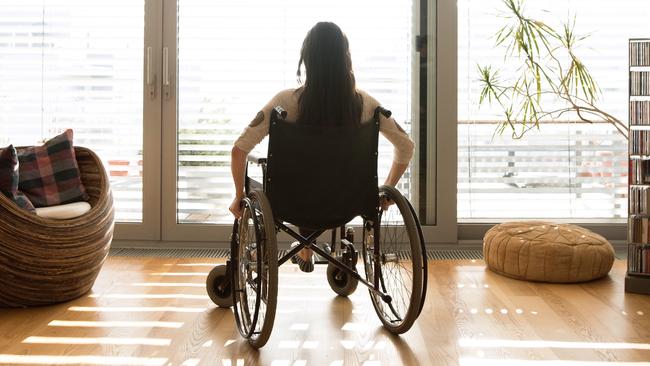Group home phase-out ‘too blunt’, warns disability expert
The disability royal commission’s majority view that all group homes should be phased out within 15 years was ‘too blunt’ a recommendation, a leading disability expert says.

The disability royal commission’s majority view that all group homes should be phased out within 15 years because they inherently segregated people with disability was “too blunt” a recommendation, a leading disability expert says.
It is the quality of support delivered to group home residents and how they get on with each other and the community around them that is the critical measure, La Trobe University professor of disability research and practice Christine Bigby said.
Professor Bigby, who gave evidence to the commission on the topic of group homes, disagreed with the conclusion of four of the six commissioners that the group home model necessarily institutionalised and breached the human rights of people with disability, saying it still offered an appropriate form of accommodation and support for some.
“I’m really concerned about the blanket labelling of all group homes as being segregated and institution-like,” she said.
“There seems to be a sense that four or five people with disability living together constitutes segregation by default – having a rigid routine, a paternalistic approach and being isolated from the community. I think that’s too blunt a way of looking at it.”
After more than four years of hearings and costing $600m, the DRC handed down its final report in September, offering 222 recommendations to governments to ensure the human rights and full inclusion in society of the 4.4 million Australians who are living with disability.
It proposed an overhaul of the nation’s disability system, including laws to prevent discrimination, a federal disability inclusion minister and a federal watchdog to police disabled people’s rights, including under the NDIS.
The six commissioners were sharply divided on special schools, disability employment and group homes, offering alternative recommendations.
Since the report was handed down, there has been debate on whether “segregation” of people with disability in schools, work and accommodation was inherently breaching human rights.
On group homes, brought in as an accommodation option from the 1970s and currently housing about 17,000 residents with disability, all six commissioners agreed that residents “can experience various forms of violence, abuse, neglect and exploitation”.
“Current practices in group homes can fail to keep people with disability safe and empowered to exercise choice and control, with a lack of opportunities to develop and build capacity,” they said.
Four of the six said all forms of group home “will never realise the rights of people with disability”.
They recommended the phase-out of group homes within 15 years. Another commissioner agreed with a phase-out but over a longer, generational, timeframe.
Only the sixth, commission chair Ron Sackville, said people with disability who made the “free and informed choice to live in a group home” should be entitled to continue to do so.
He noted the change to alternative forms of accommodation would be a long-term and costly process.
Professor Bigby said “the evidence clearly shows there are some very high quality group homes where people can have a good life. There are also really poor quality group homes.
“My sense is it’s not because of the model. It’s the quality of staff support and supervision of staff within that model that makes the difference.”
She said the concept of segregation of people with disability was “very emotive”, and at a practical level it wasn’t necessarily applicable in group home settings.






